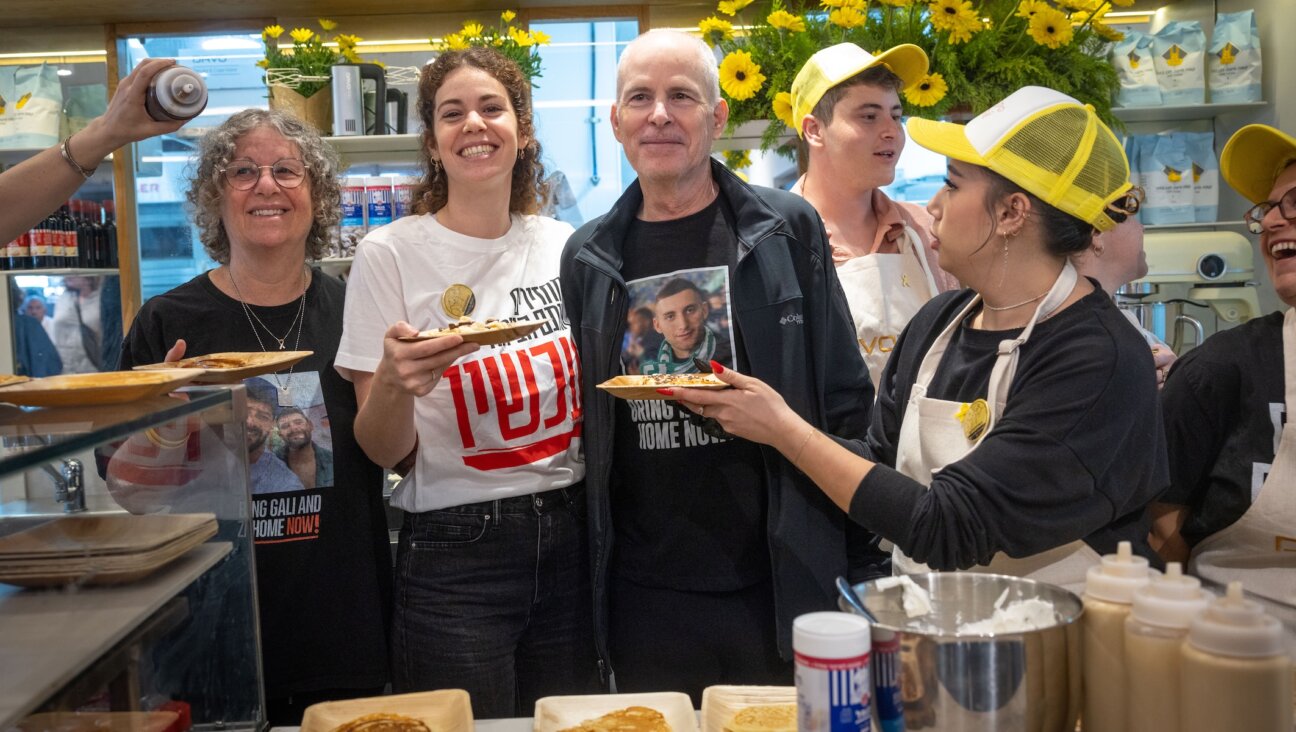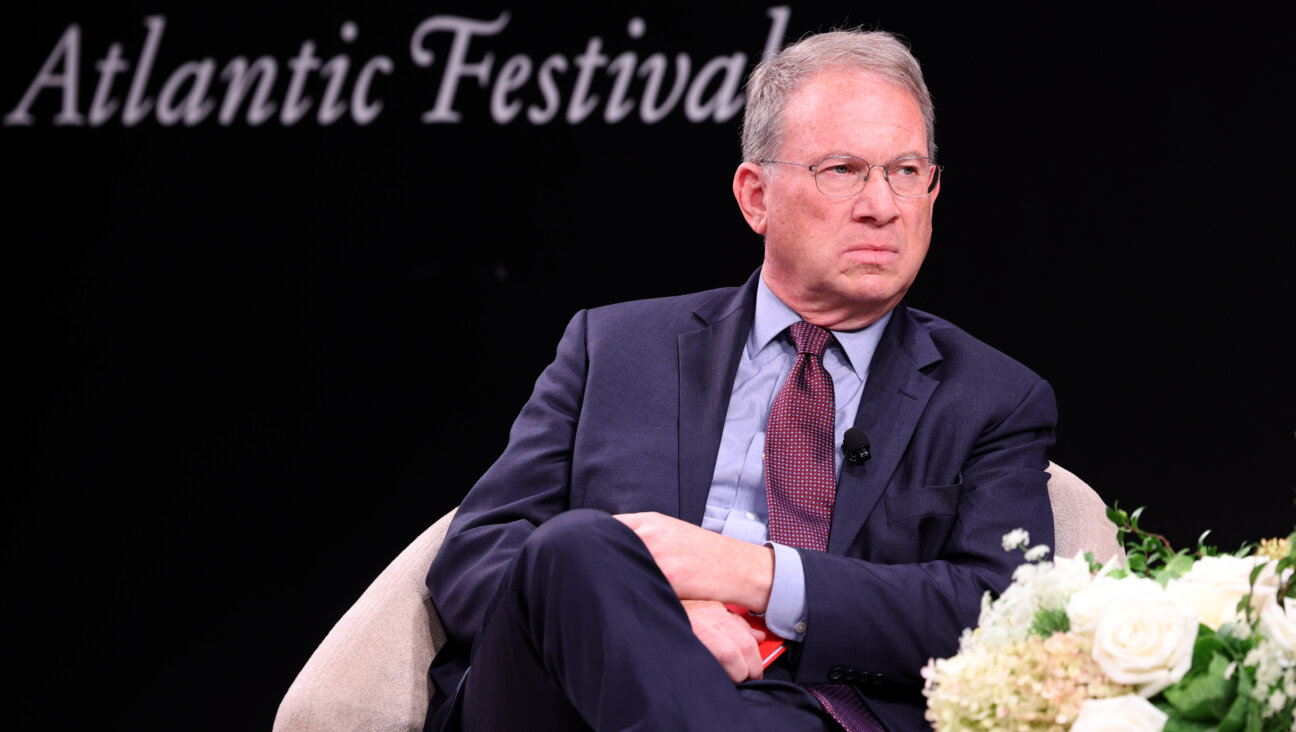The Two Souths
Whenever the phone rings in my New York apartment and the Caller ID screen says “Out of Area,” I never know just how far away from Manhattan it is. Sometimes it’s my father-in-law calling from Chile; other times it’s my father from his unlisted number in Pennsylvania. When my husband, Leo, and I refer to “The South,” we have to clarify whose South we’re talking about. Is it mine: the one with grits and Alabama? Or his: the one with cold-water salmon and Antarctica? We take turns being foreign.
It was only several months after we met that we confirmed what had made it so easy for us to relate to each other, starting with our first conversation. I met Leo in 1998 through his sister Ana, who came from Chile for a master’s degree at Columbia University, where I was an undergraduate. When I told her I’d applied for a semester abroad in her country, we discovered I would be studying at the same Chilean university in Viña del Mar as her younger brother. Several months later, he came to visit and she passed him my number.
When we spoke in class, Ana and I both guessed that the other was Jewish, but neither of us asked. I didn’t ask Leo either. As one of five Jewish children my age in a once-thriving western Pennsylvania steel town, I’ve never been comfortable bringing up my religious background. In my public high school, classmates called each other “kike” and accused the cafeteria cashier of “jewing them out of their money.”
Raised in a community of a hundred Jewish families in Catholic Chile, Leo and Ana weren’t in the business of advertising their Judaism either. While Viña del Mar may be a “city” at the height of the tourist season, life for the year-round residents is principally a provincial one.
In Leo’s secular school, his classmates would taunt him, mocking his nose de judío and saying he couldn’t really be a Chilean if he was a Jew.
It was only later when I visited his childhood home in Chile and saw the mezuza on the door that we confirmed our mutual hunches. Our connection wasn’t just because we were Jewish, but that we were both small-town Jews who had grown up at odds with our general social environment. What we had sensed from our first date was a mutual uneasiness about publically identifying ourselves with our religion.
Living in a country with no church-state separation, Leo confronted far more explicitly antisemitic situations than those I experienced in the United States. But, like Leo, I remember feeling frustrated at having to force myself to accept Christmas customs and even to say thank you when wished a “Merry Christmas.” The few times I mentioned that I didn’t celebrate Christmas, I struck a note of high-pitched tension, as if not celebrating Christmas were the equivalent of ailing from malaria.
Recently, while having dinner with several New York-born Jewish friends, Leo recounted a story of a family who moved to Viña del Mar, joined his small synagogue and began receiving financial assistance and free tuition to attend the community-run elementary school. Leo described how some members of the community began to gossip that the family wasn’t actually Jewish and had joined the community for less-than-spiritual reasons. But no ever confronted the family, and they stayed on, receiving help and participating peripherally for many years. Our New York-born friends found the community’s lack of response baffling.
But I didn’t. I understood it perfectly. A similar situation happened in my hometown, and, as in Viña, the family received assistance until they eventually moved away. As in Leo’s case, our tiny synagogue tolerated the situation in order to avoid creating conflict and drawing outside attention. In a small-town Jewish community ever aware of its visibility, no one wants to create a potentially scandalous situation that might catch the attention of the rest of the town, already suspicious of Jews. Besides, when a small shul struggles to have enough people for a minyan, another family in attendance is a welcome sight. If they are pleasant enough, a sizable constituency will readily overlook any un-kosher motives.
After five years together, Leo and I still surprise each other with the sharp contrasts in our childhood memories. In 1989, Leo remembers tagging along with Ana to a rally against former Chilean dictator Augusto Pinochet. I remember sledding off Christie Pote’s roof and breaking off her drainpipe. But around the same age, we both remember beginning to participate in our families’ discussions about people of possible Jewish heritage not affiliated with the synagogue. People anywhere in the Diaspora may talk about it, but it’s probably more common among Jews in small towns where you know everyone in the supermarket by name yet have to buy your matzo through the synagogue.
Leo’s father became increasingly fanatic about crypto-Jewish history during my husband’s childhood, constantly pointing out which neighbors had a Spanish name of possible Jewish origin, like Chávez — thought to be a derivation of Shabbos. Leo couldn’t help developing a heightened awareness of potential Converso names, analyzing who might be lost members of the tribe.
With no hidden Jews to smoke out in western Pennsylvania, we scrutinized anyone who had Jewish-sounding last names. The possible Semitic roots of my teacher Ms. Wolf was a dinner topic during my entire sixth-grade year. One of my Hebrew school classmates claimed to have seen her at Yom Kippur services. Another said he’d heard the Wolfs listed on the Tree of Life in the synagogue’s lobby were her grandparents. We went on and on — it was comforting to think our local tribe might be larger than the critical mass who showed up for Yom Kippur.
Having gone to college on the Upper West Side, my sense of conspicuousness has lessened considerably, and a year and a half in walking distance of Zabar’s has already done wonders for Leo. When two Catholic Chilean friends recently came to visit, he took them to a klezmer concert at Lincoln Center. He called Ana afterward and told her. She laughed and said it doesn’t take long to convert to judaismo nuyoricano.
Idra Rosenberg is a writer and translator and has written for various American and South American publications.
The Forward is free to read, but it isn’t free to produce

I hope you appreciated this article. Before you go, I’d like to ask you to please support the Forward.
At a time when other newsrooms are closing or cutting back, the Forward has removed its paywall and invested additional resources to report on the ground from Israel and around the U.S. on the impact of the war, rising antisemitism and polarized discourse.
Readers like you make it all possible. We’ve started our Passover Fundraising Drive, and we need 1,800 readers like you to step up to support the Forward by April 21. Members of the Forward board are even matching the first 1,000 gifts, up to $70,000.
This is a great time to support independent Jewish journalism, because every dollar goes twice as far.
— Rachel Fishman Feddersen, Publisher and CEO
2X match on all Passover gifts!
Most Popular
- 1

News A Jewish Republican and Muslim Democrat are suddenly in a tight race for a special seat in Congress
- 2

Film & TV What Gal Gadot has said about the Israeli-Palestinian conflict
- 3

Fast Forward The NCAA men’s Final Four has 3 Jewish coaches
- 4

Fast Forward Cory Booker proclaims, ‘Hineni’ — I am here — 19 hours into anti-Trump Senate speech
In Case You Missed It
-
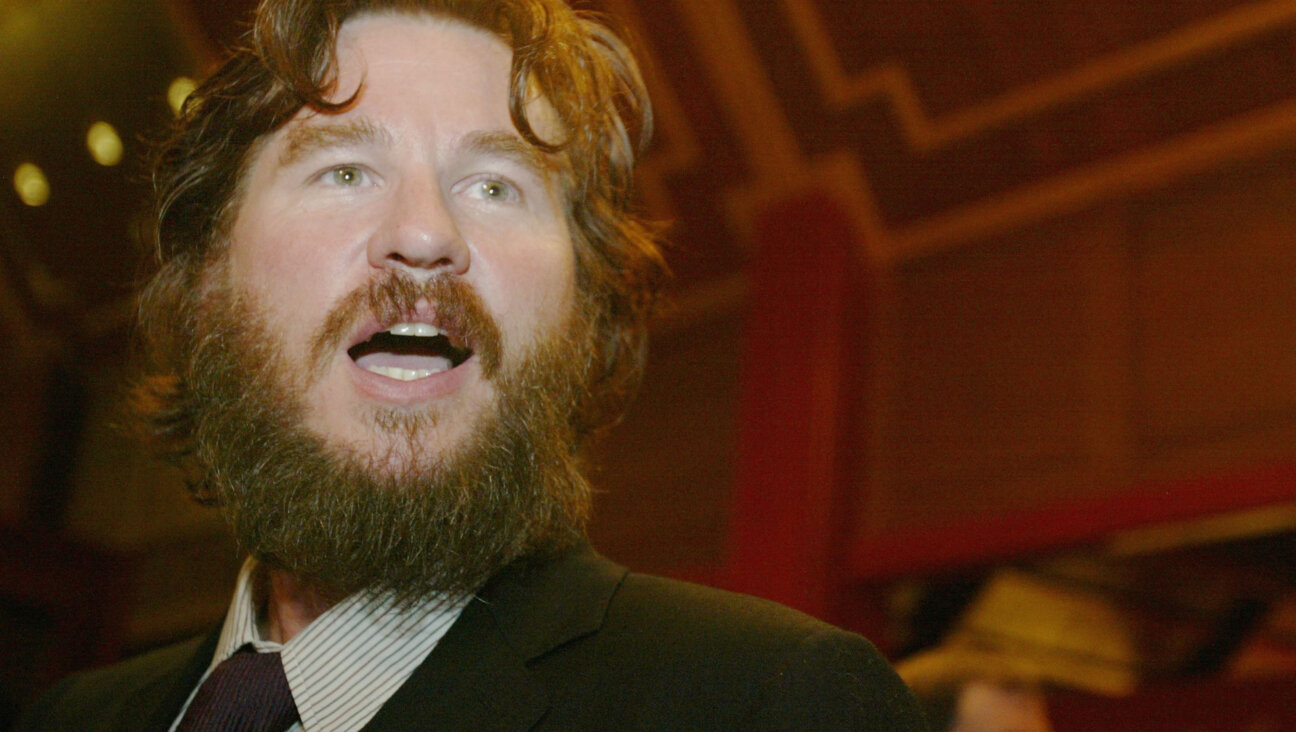
Film & TV Val Kilmer was the voice of my generation’s Moses (and God)
-

Fast Forward Cory Booker spoke at a synagogue on Yom Kippur. Its rabbi says Jews should learn from his 25-hour Senate speech.
-
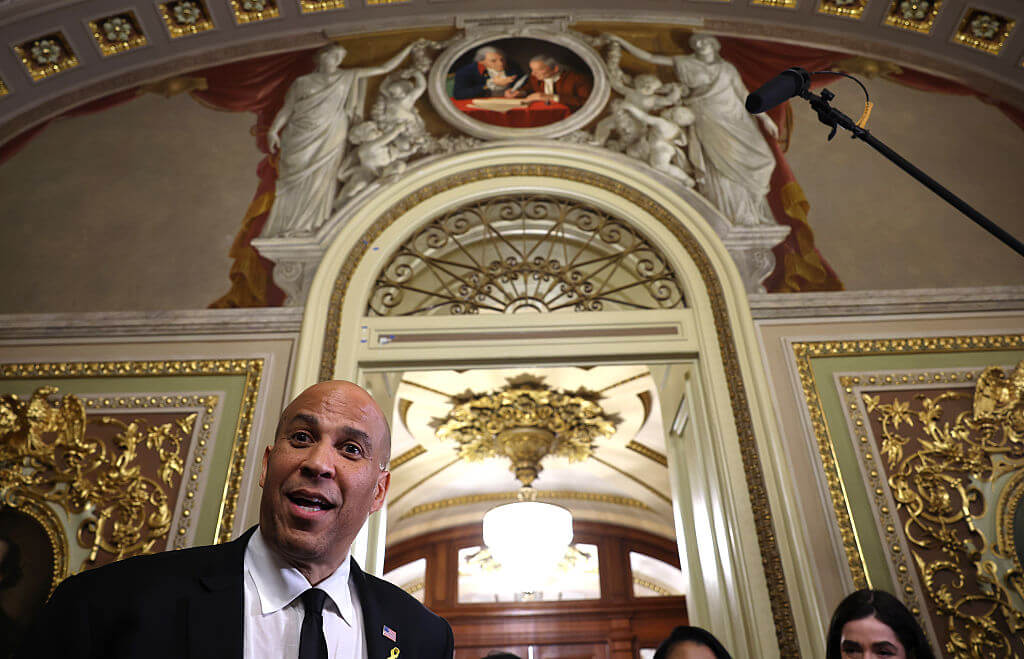
Fast Forward Cory Booker’s rabbi has notes on Booker’s 25-hour speech
-
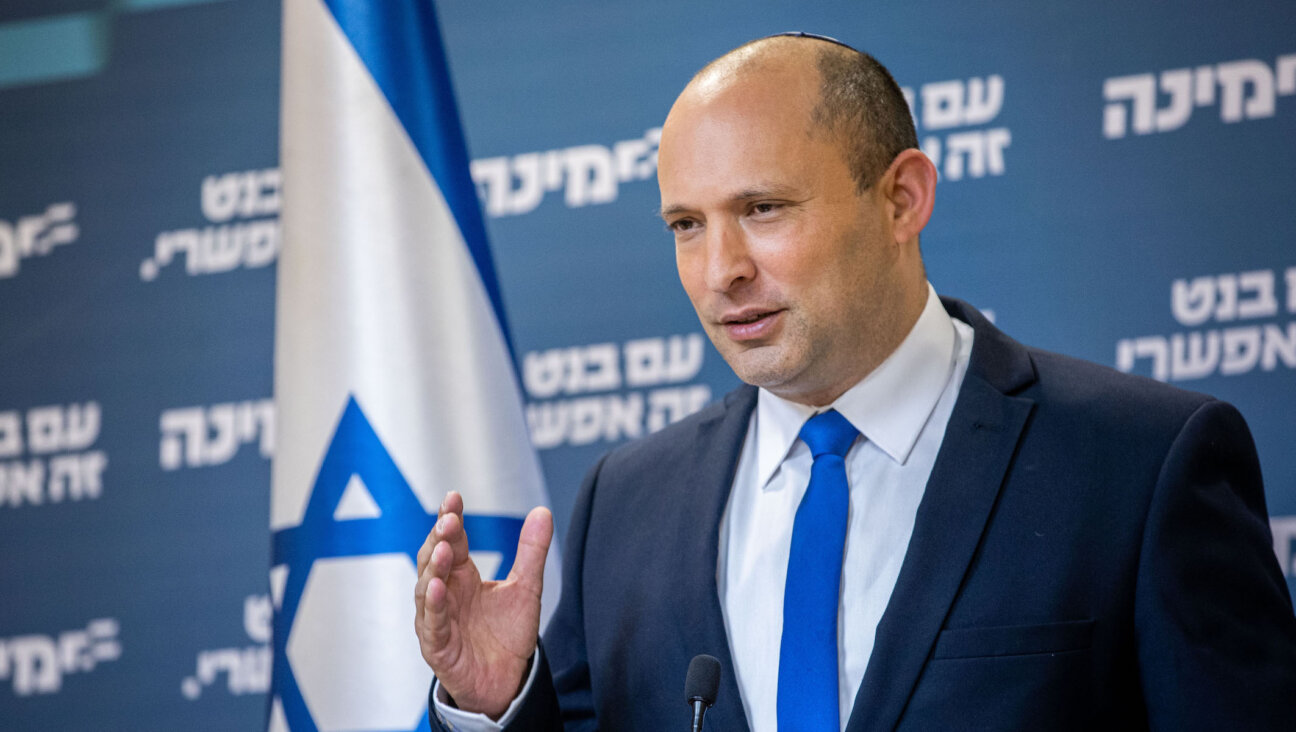
Fast Forward Naftali Bennett is back: Former Israeli prime minister will make another run at Netanyahu
-
Shop the Forward Store
100% of profits support our journalism
Republish This Story
Please read before republishing
We’re happy to make this story available to republish for free, unless it originated with JTA, Haaretz or another publication (as indicated on the article) and as long as you follow our guidelines.
You must comply with the following:
- Credit the Forward
- Retain our pixel
- Preserve our canonical link in Google search
- Add a noindex tag in Google search
See our full guidelines for more information, and this guide for detail about canonical URLs.
To republish, copy the HTML by clicking on the yellow button to the right; it includes our tracking pixel, all paragraph styles and hyperlinks, the author byline and credit to the Forward. It does not include images; to avoid copyright violations, you must add them manually, following our guidelines. Please email us at [email protected], subject line “republish,” with any questions or to let us know what stories you’re picking up.








